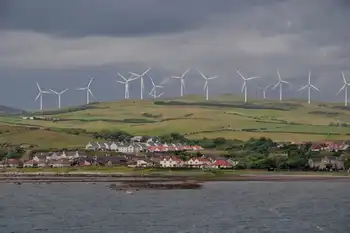Alberta Rate of Last Resort provides a baseline electricity price, boosting energy reliability, affordability, and consumer protection amid market volatility, aligning with grid modernization, integration, pricing transparency, and oversight from the Alberta Utilities Commission.
Key Points
A fallback electricity rate ensuring affordable, reliable power and consumer protection during market volatility.
✅ Guarantees a stable baseline price when markets spike
✅ Supports vulnerable customers lacking competitive offers
✅ Overseen by AUC to balance protection and competition
The Alberta government has announced significant strides in its electricity market reforms, unveiling a new plan under new electricity rules that aims to enhance energy reliability and affordability for consumers. This initiative, highlighted by the introduction of a "rate of last resort," is a critical response to ongoing challenges in the province's electricity sector, particularly following recent market volatility and increasing consumer concerns about rising electricity prices across the province.
Understanding the Rate of Last Resort
The "rate of last resort" (RLR) is designed to ensure that all Albertans have access to affordable electricity, even when they face challenges securing a competitive rate in the open market. This measure is particularly beneficial for those who may not have the means or the knowledge to navigate complex energy contracts, such as low-income families or seniors.
Under this new plan, the RLR will serve as a safety net, guaranteeing a stable and predictable rate for customers who find themselves without a competitive provider. This move is seen as a crucial step in addressing the needs of vulnerable populations who might otherwise be at risk of being shut out of the energy market.
Market Volatility and Consumer Protection
Alberta's electricity market has faced significant fluctuations over the past few years, and is headed for a reshuffle as policymakers respond to unpredictability in pricing and service availability. The rise in energy costs has caused distress among consumers, with many advocating for stronger protections against sudden price hikes.
The government's recent decision to implement the RLR is a direct acknowledgment of these concerns. By creating a baseline rate, officials aim to provide consumers with peace of mind, knowing that there is a fallback option should market conditions turn unfavorable. This initiative complements other measures aimed at enhancing consumer protections, including improved transparency in pricing, the consumer price cap on power bills being advanced, and the regulation of energy suppliers.
Broader Implications for Alberta’s Energy Landscape
This plan is not only about consumer protection; it also represents a broader shift towards a more sustainable and stable energy market in Alberta, aligning with proposed electricity market changes under consideration. The introduction of the RLR is part of a comprehensive strategy that includes investments in renewable energy and infrastructure improvements. By modernizing the grid and promoting cleaner energy sources, the government aims to reduce dependency on fossil fuels while maintaining reliability and affordability.
Additionally, this move aligns with the province's goals to meet climate targets and transition to a more sustainable energy future as Alberta is changing how it produces and pays for electricity through policy updates. As the demand for clean energy grows, Alberta is positioning itself to be a leader in this transformation, appealing to both residents and businesses committed to sustainability.
Public and Industry Reactions
The announcement has garnered mixed reactions from various stakeholders. While consumer advocacy groups have largely praised the government's efforts to protect consumers and ensure affordable electricity, some industry experts express concerns about potential long-term impacts on competition, arguing the market needs competition to remain dynamic. They argue that while the RLR provides immediate relief, it could disincentivize companies from offering competitive rates, leading to a less dynamic market in the future.
The Alberta Utilities Commission (AUC) is expected to play a pivotal role in overseeing the implementation of the RLR, ensuring that it operates effectively and that any unintended consequences are addressed swiftly. This regulatory oversight will be crucial in balancing consumer protection with the need for a competitive energy market.
Conclusion
As Alberta forges ahead with its electricity market reforms, the introduction of the rate of last resort marks a significant step in enhancing consumer protection and ensuring energy affordability. While challenges remain, the government's proactive approach reflects a commitment to addressing the needs of all Albertans, particularly those most vulnerable to market fluctuations.
In this evolving energy landscape, the RLR will serve not only as a safety net for consumers but also as a foundation for a more sustainable and reliable electricity system. As Alberta continues to adapt to changing energy demands and climate considerations, the effectiveness of these measures will be closely monitored, shaping the future of the province’s electricity market.
Related News












